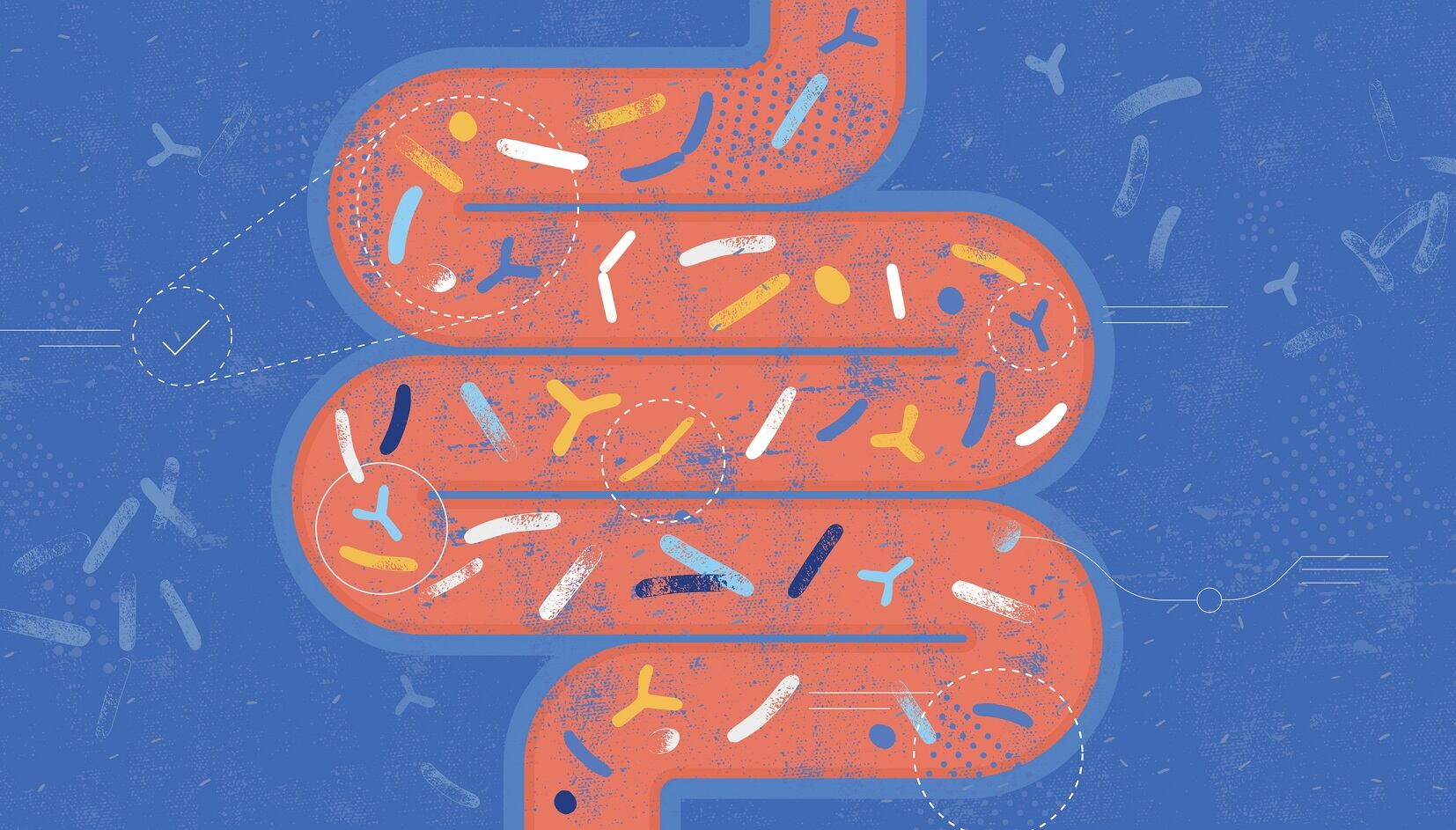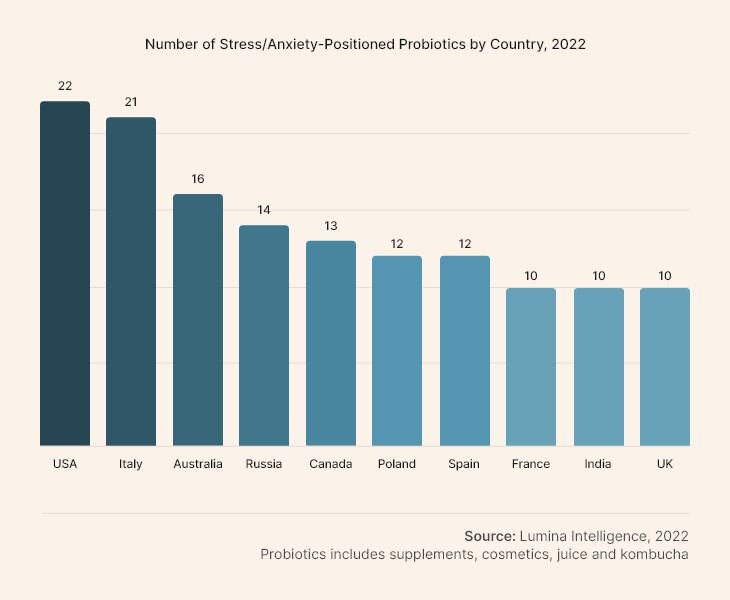Four weeks of supplementation with a fermented milk product containing Lacticaseibacillus rhamnosus CNCM I-3690 was associated with lower changes in alpha-diversity markers and community shifts, compared to the start of the study (baseline controls).
Data published in npj Biofilms Microbiomes also showed that the probiotic led to higher abundance of Faecalibacterium prausnitzii, and this was associated with decreased self-reported anxiety levels before the exam. F. prausnitzii has been associated with positive effects on gut health. The species produces the short-chain fatty acid butyrate, which has anti-inflammatory properties and is beneficial for colon health.
“In this study, the effect of the probiotic mixture on gut microbiota was limited to an increase in Lactobacillus, indicating that the effect was likely due to specific probiotic strains rather than a broader modulation of the gut microbiome,” wrote the research team, led by Tim Vanuytsel, Muriel Derrien and Jeroen Raes.
“We further found a higher abundance of some bacterial species following intake of L. rhamnosus CNCM I-3690 such as R. bicirculans, which has been recently negatively associated with major depressive disorder.
“Next, using quantitative co-occurrence network analysis, we found that L. rhamnosus positively covaried with a.o. butyrate-producers (Faecalibacterium, Coprococcus) and some Bifidobacterium species (B. longum, B. bifidum) and negatively covaried with Flavonifractor.”
Microbiota-gut-brain axis
The study adds to the ever-growing body of science supporting the role of the microbiota-gut-brain axis for cognitive function. This axis is a bidirectional interaction between the GI tract and the nervous system and implicates the ability of specific strains to produce key neurotransmitters like GABA (gamma-aminobutyric acid), serotonin and dopamine.
Consumer awareness of the axis is growing, with a 2021 survey by FMCG Gurus revealing that 45% of consumers associated probiotics with cognitive health.
Additional market data from Future Market Insights indicates that the market for probiotic supplements supporting mental health and wellness (“psychobiotics”) is predicted to grow by 44% over the next 10 years, from $140 million in 2023 to $202 million in 2033.
The new study is a post-hoc analysis of data published in 2022 in Gut Microbes that showed that L. rhamnosus CNCM I-3690 protected against increases in measures of permeability (leakiness) of the small intestine increased, and reduced the stress-induced increases in scores on the State-Trait Anxiety Inventory (STAI), compared to placebo. Data also showed the probiotic prevented stress, as measured by PSS (Perceived Stress scores).
Study details
The researchers recruited 79 healthy students between the ages of 20 and 30. Participants were randomly assigned to receive an acidified milk (placebo) or a non-commercialized fermented dairy product containing L. rhamnosus CNCM I-3690, with 100 billion CFUs per 100 g. Two 100 ml bottles were consumer twice a day for four weeks.
The researchers reported that the probiotic was associated with lower changes in markers of alpha-diversity, “suggesting lower overall changes of gut microbiota during psychological stress in the probiotic group.”
“The intake of L. rhamnosus CNCM I-3690 induced differential abundance of some species, such as the maintenance of the quantitative abundance of Ruminococcus bicirculans, and co-varied with species, which differed according to visits (i.e., stress level), suggesting a potential beneficial effect of the strain before the highest increase of stress level,” they added.
“We found that L. rhamnosus CNCM I-3690 has a potential effect on gut microbiome response to stress, although further studies are needed to better understand the precise interaction."
Source: npj Biofilms Microbiomes, 2025, 11, 140. doi: 10.1038/s41522-025-00776-w. “Probiotic-mediated modulation of gut microbiome in students exposed to academic stress: a randomized controlled trial”. Authors: J.F. Vázquez-Castellanos, et al.





